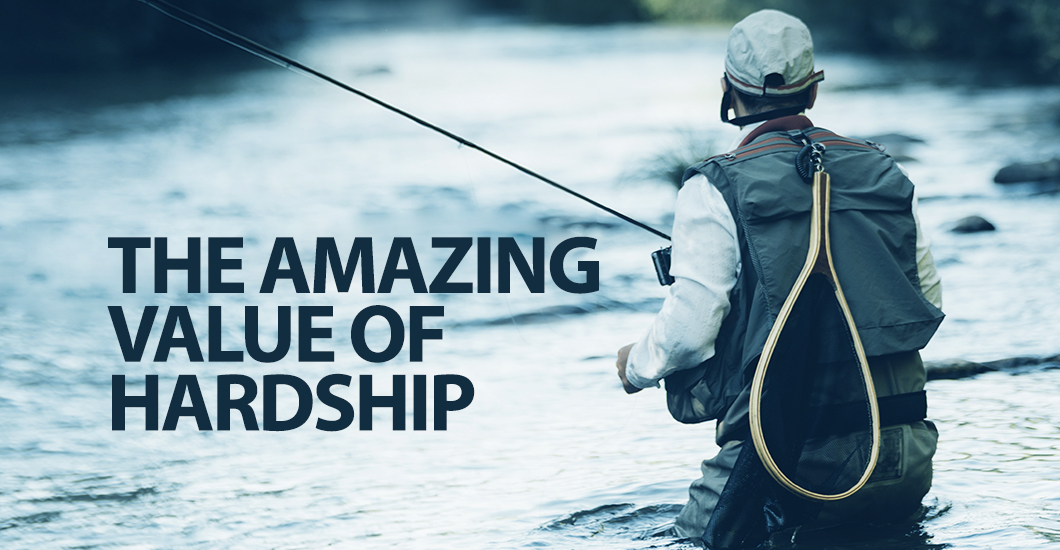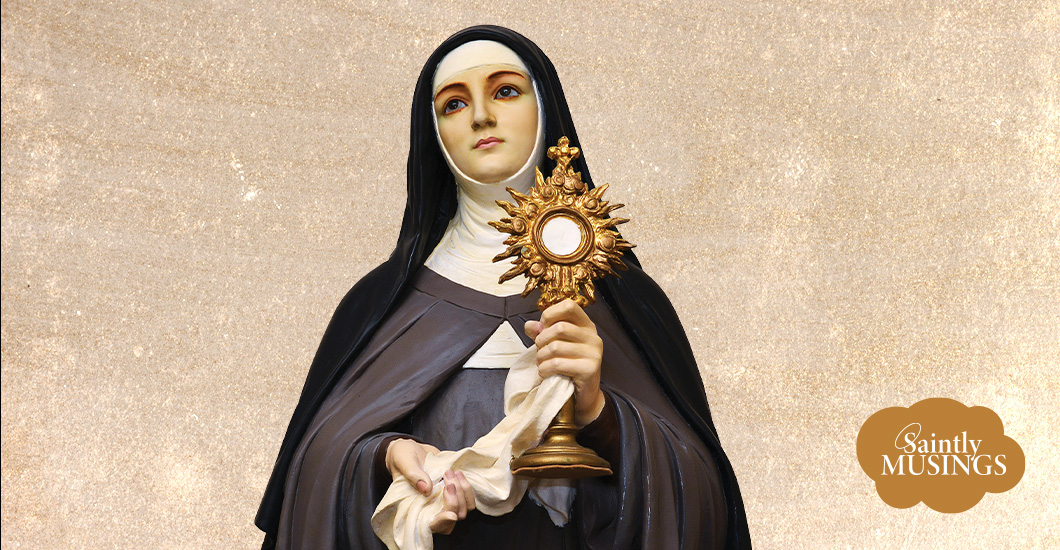Trending Articles
The Amazing Value of Hardship
Hardship is not pleasant. It creates discomfort in our lives. It inconveniences our plans. It discourages us, causing hesitation and inaction. Yet, properly understood, hardship is one of the most valuable opportunities in the Christian life. It helps us grow in faith, personal maturity and intimacy with God. The opening verses of the gospel of Luke Chapter 5 capture almost every important insight for understanding the value of hardship, if we are willing to allow it to form us:
“[Jesus] saw two boats … the fishermen had disembarked and were washing their nets. Getting into one of the boats … he asked [Peter] to put out a short distance from the shore … After he had finished speaking [to the crowd], he said to Simon, “Put out into deep water and lower your nets for a catch.” Simon said in reply, “Master, we have worked hard all night and have caught nothing, but at your command I will lower the nets.” When they had done this, they caught a great number of fish and their nets were tearing … They… filled both boats so that they were in danger of sinking. When Simon Peter saw this, he fell at the knees of Jesus and said, “Depart from me, Lord, for I am a sinful man.” For astonishment at the catch of fish … seized him and all those with him … “(Luke 5:1-8).
Comfort
If your experience of boats is limited to luxury cruise liners, you might be under the impression that boats are comfortable. They are not. Especially if the boat is a firstcentury fishing boat. A long night of fishing consisted of bending over, hauling nets and sitting on narrow wooden seats, all while wearing wet clothes.
By the time Jesus gets around to speaking to Peter, the fishing is over and done. Peter is ashore, mending nets and cleaning up. Peter has had some time to stretch his sore muscles a bit, and he is certainly ready for some sleep after a long night on the water. Fishing is hard work and he is tired. Jesus, apparently unfazed by Peter’s fatigue and lack of a catch, looks at him and says, “Let’s go.”
This is the first of Peter’s three important decisions. He must choose between the comfort of his bed and the discomfort of the boat. Peter chooses discomfort. Peter references Jesus as “master,” implying that he does not yet have the revelation of Jesus as the Christ. The term “master” would apply to any wise teacher. Still, Peter chooses discomfort.
Convenience
It is one thing for Peter to let the rabbi teach from his boat. After all, Peter ends up with a front-row seat to listen to this master, to rub shoulders with the local “celebrity.” Jesus, though, is about to “up the ante” with Peter.
After teaching, Jesus basically says to Peter, “Hey, let’s go farther out and fish.” Peter, knowing that fishermen fish at night for a reason, may well have thought to himself, dismissively, “Carpenter’s son!” Jesus is proposing that Peter hit the reset button on the entire fishing operation. It takes time to row out to deep water, drop the nets, haul the nets back in, return to shore and mend the nets (again). If he is lucky, he might get an hour or two of sleep before he comes back to fish in the evening.
This is the second of Peter’s three important decisions. Jesus has interrupted the rhythm of Peter’s life. At first, the cost to Peter is small, maybe an hour or two of inconvenience. But, Jesus seems almost intent on making things downright difficult for him. Peter knows that his workday begins when the sun goes down and Jesus is asking for most of the daylight hours until then.
Peter chooses the harder path—again. He trusts a carpenter against his own knowledge and expertise and heads out to deep water. The payoff for Peter appears to be nothing more than a long day in the hot sun. Yet, he chooses inconvenience.
Cowardice
Peter drops his nets into the water and is confronted by a completely unforeseen issue that appears to threaten everything! As he hauls them in, they are so full of fish that he needs help from another boat. Luke tells us that both boats “were in danger of sinking.”
This seems perplexing. Peter’s obedience has brought a super-abundant, astonishing bounty. It is so abundant that the boats are in danger of sinking. Losing his boat would spell the end of his livelihood and maybe the end of his life. Peter must choose again.
He can start tossing fish out of the boat to lighten the load or even cut his own nets. Or, he can muster the courage to hang onto the full weight of God’s blessing. Peter chooses correctly for the third time. He risks everything for the fullness of the catch. Later in his ministry, Peter would need to know this lesson—increase comes at a price.
The Astonishing Nature of God
Luke recounts Peter’s response to the catch, which can be captured with a single word. Once again, Peter speaks directly to Jesus. Instead of calling Jesus “master,” Peter calls Him “Lord.” He glimpses the very divinity of Jesus, Son of Man and Son of God.
It should not be lost on us that, even to seasoned, experienced fishermen, this catch of fish was astonishing. The catch was so bountiful that the minds of the fishermen could not explain it rationally. It appears that the catch was not abundant, but actually “superabundant”; that is, defying logic, reason, knowledge and natural wisdom.
Understanding Hardship
The Christian understanding of hardship and suffering is intimately tied to evil and redemption. Hardship exists in the world because evil exists in the world. Sin, death, disease and trauma make life hard. These things do not originate from God. Because of His redemptive love, God is able to transform hardship into bounty. He is able to turn “less” into “more.”
Chapter 15 of John’s Gospel compares us to grape vines. Jesus tells the disciples in a pointed way that He prunes those who bear fruit (believers) so that they bear more fruit. Pruning, by definition, is the cutting away of that which is not necessary in order to promote new growth that produces more! And it is painful.
Leaning Into Hardship
In many circumstances in life, hardship is the very path to what we desire. If we listen in the way Peter did, Jesus will lead us through hardship to some kind of breakthrough, the greatest of which is a deeper, more intimate relationship with Him.
Hardship has the ability to push us beyond ourselves. It helps to forge the dimensions of our character that can only emerge through difficulty. Comfort, convenience and cowardice keep us from a life that is fully alive in Christ. Discomfort, inconvenience and courage form the real substance of our “yes” to Christ. They allow us to see Jesus for who He is and—like Peter—to say “Lord.”
Ken Kniepmann has been with the John Paul II Healing Center since its inception, and has functioned in a variety of roles, including Board Chairman, Executive Director and presenter. Kniepmann is the author of Lenten Healing: Fasting the Seven Deadly Sins and has a bi-monthly radio show on Divine Mercy Radio in east central Florida, and co-developed the Centers’ “ABLAZE!” mens conference. He is a regular contributor to the blog site Catholic Stand. Kniepmann has a Bachelor of Arts degree in Psychology and M. Ed. in Counseling. He has been married for more than twenty-five years to his wife, Sharon, and they have two children.
Latest Articles
Want to be in the loop?
Get the latest updates from Tidings!





